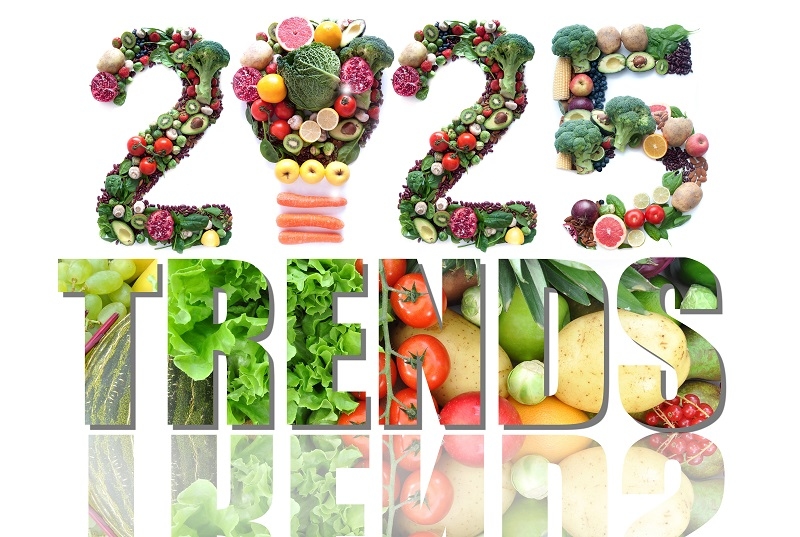
American families are becoming more health-literate than ever as we walk into the year 2025. Individuals desire food that will not only be delicious, but also sustaining to general well-being. Whether you want to cater to picky eaters, health-conscious teens, or those busy parents, it could be beneficial to know the current trends in nutrition for the year 2025 so you may develop better eating habits within your family. This blog is posted to outline important changes in the food world and how they transform the nutrition of families in the USA. Now, let us see the current top nutrition trends that every family must be familiar with, and how simple they are to implement in your life.
The plant-based food is no longer a niche. By the year 2025, it will be a family favorite.
Families are abandoning animal protein and trading it for beans, lentils, tofu, as well as pea protein. The alternatives to meat made of plant-based ingredients are even tastier and cheaper than before.
The benefits of converting to plant-based meals are that they help improve the health of the heart, lower the chances of getting a chronic illness, and are also good for the environment. Even children are being encouraged to eat meatless dishes once in a while.
Have Meatless Mondays, include extra beans in soups and stew, or serve vegetable burgers. Get a small one and increase depending on the needs of your family.
In 2025, one-size-fits-all diets are fading. Thanks to tech, personalized eating plans are gaining popularity.
It’s a health plan designed for your body’s unique needs. Some use DNA tests or gut health reports to learn which foods suit them best.
This trend helps in understanding individual allergies, intolerances, or vitamin needs. It supports better energy, digestion, and long-term health.
Many apps now offer personalized meal suggestions based on simple quizzes. You don’t need lab tests to get started—just focus on what works best for each family member.
The focus in 2025 isn’t just on calories—it’s on wellness foods that help the body thrive.
These are nutrient-packed foods like turmeric, ginger, berries, leafy greens, and fermented products. They support immunity, digestion, and mood.
Chia seeds, flaxseeds, moringa, and sea moss are being added to smoothies and breakfast bowls. Parents love them for their anti-inflammatory and energy-boosting benefits.
Add berries to morning oatmeal, sprinkle flaxseeds over yogurt, or blend spinach into a fruit smoothie. Even small additions go a long way.
Families are swapping soda and sugary juices for drinks that support health goals.
These include drinks with added vitamins, adaptogens, or probiotics. Think kombucha, green tea, and drinks with magnesium for relaxation.
These drinks improve sleep, focus, and digestion—key concerns for both kids and adults.
Look for low-sugar probiotic drinks or calming herbal teas for bedtime. Coconut water is another great option for hydration without added sugar.
Gut health is more than a trend—it’s a foundation for overall well-being in 2025.
A healthy gut improves digestion, mental clarity, and immune strength. It’s especially important for growing children.
Include more yogurt, kefir, kimchi, miso, and high-fiber fruits and veggies. Fiber feeds the good bacteria in the gut.
Avoid overuse of antibiotics, cut down on processed foods, and include at least one fermented or fiber-rich item in each meal.

Families are choosing food that’s good for both their health and the planet.
This means eating foods that use fewer resources to produce, reduce waste, and are kinder to the earth.
Sustainable foods are often fresher and richer in nutrients. Local produce is picked when ripe, which boosts both flavor and vitamin content.
Choose reusable containers, eat more home-cooked meals, and buy from farmers’ markets. Teaching kids about food sources builds lifelong awareness.
Snack time is transforming. In 2025, families are focusing on healthy eating habits even between meals.
Chips and sugary snacks are being replaced with options like roasted chickpeas, fruit bars, yogurt pouches, and veggie sticks.
A good snack includes protein, fiber, and healthy fats. Try apple slices with peanut butter, or boiled eggs with cucumber slices.
In 2025, mental health and food are closely linked. Families are paying more attention to how they eat, not just what they eat.
It’s about slowing down and tuning into hunger cues. This helps prevent overeating and teaches kids to listen to their bodies.
Instead of strict rules, intuitive eating encourages freedom. No food is “bad”—it’s about balance and paying attention to how foods make you feel.
Technology is making healthy eating easier and smarter.
Fridges can now suggest recipes based on what’s inside, track expiry dates, and send alerts when food goes bad. Apps track water intake, plan meals, and even scan groceries for nutritional quality.
Meal planning apps reduce stress, help budget groceries, and avoid last-minute takeout. Even voice assistants can now help build shopping lists based on your family’s diet.
Post-pandemic habits are still strong. Families continue to prioritize immunity-boosting meals.
Citrus fruits, bell peppers, garlic, green tea, and sunflower seeds are packed with nutrients like vitamin C, zinc, and antioxidants.
Make orange smoothies, garlic pasta, or colorful veggie stir-fries. Add fun shapes or cute plating for younger children.
In 2025, family nutrition in the USA sees a stronger focus on protein—especially clean and lean sources.
Staying with the nutrition trends in 2025 does not imply changing the family nutrition system in one night. Don't make big changes, even introducing one meal a week made up of plant-based food, or replacing soda with a probiotic drink, or even adding a snack that aids the digestive system. Such minor adjustments contribute to the improvement of a healthy diet and increased energy, as well as an improvement in happier mealtimes.
The concepts of family nutrition in the USA have become more up-to-date, interesting, and open than ever before. These wellness foods will become a part of your family with a bit of creativity and intent to live this way and raise your next generation of well-nurtured, mindful eaters.
This content was created by AI